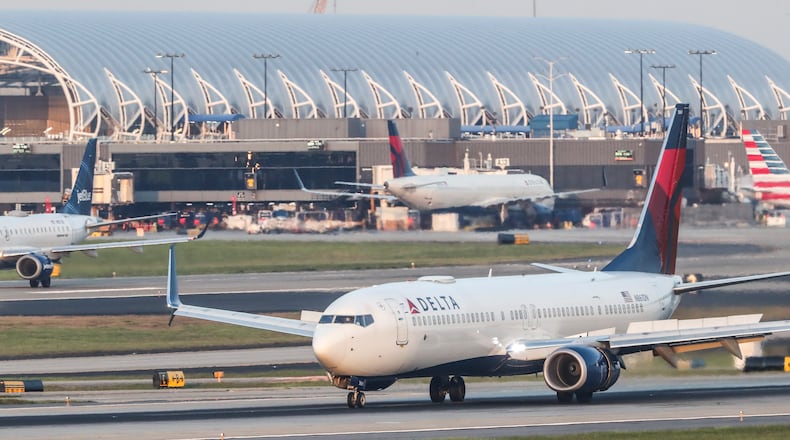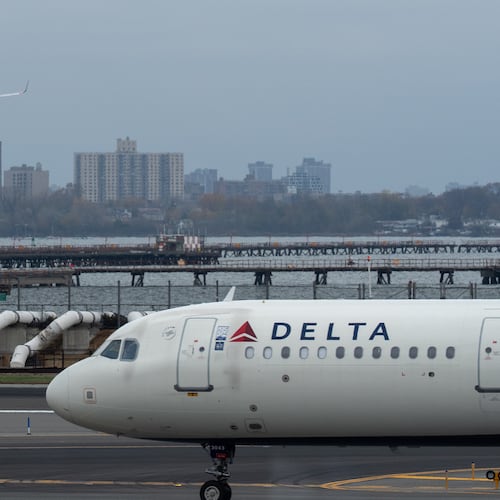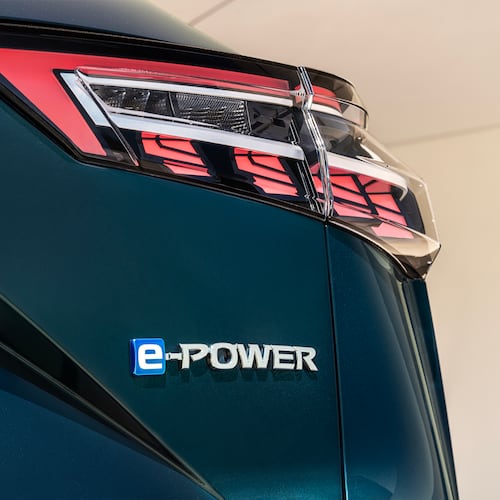Booking a flight today for many of us involves sifting through dozens of departure times and carriers offering a dizzying range of pay-to-play amenities like extra legroom.
Five decades ago it was limited routes set by the government, featuring linen tablecloth meals on empty planes that only the wealthy could afford.
Today’s array of airlines competing for your dollar is the result of a 1978 law that freed up the industry to compete openly, championed by then-President Jimmy Carter’s administration.
One of the most enduring policy legacies of Carter, who died in late December, was deregulation of several industries, including aviation, trucking, rail and telecommunications.
While airlines fought the move at the time — Delta Air Lines even published a cartoon calling deregulation a “wolf in sheep’s clothing — airline leaders tout the benefits of competition in an industry that was then offering government-controlled routes and government-set prices.
The industry estimates that airline ticket prices have dropped 50% since the Airline Deregulation Act of 1978, adjusting for inflation.
But some argue that in the nearly 50 years since, a deregulated and consolidating airline industry has left consumers vulnerable and in need of new protections.
The U.S. Department of Transportation under Pete Buttigieg has in fact “stepped on the gas on the consumer protection side” with a series of new rules including on fee transparency, immediate refunds and seating fees, said Diana Moss, an economist and antitrust expert at the Progressive Policy Institute, a left-leaning policy think tank.
When the Biden administration blocked JetBlue’s acquisition of Spirit, President Joe Biden said in a social media post that “Capitalism without competition isn’t capitalism — it’s exploitation.”
But Susan Dudley, a regulatory expert and public policy professor at George Washington University, worries those rules “forget” some of the lessons of deregulation. If we “tell airlines they can’t charge extra for seats and they have to do this or that, I think that will diminish competition and will have negative consequences.”
Delta CEO Ed Bastian said in an interview with The Atlanta Journal-Constitution he’s hoping the Trump administration will take a different path.
Credit: Jason Getz / Jason.Getz@ajc.com
Credit: Jason Getz / Jason.Getz@ajc.com
While the Biden administration “obviously had a very strong consumer bent, which I understand,” he said he’s “hoping and expecting the next administration to have more balance between what the industry needs and what consumers want.”
“I don’t see us going back at all.”
Democratizing the skies
Deregulation “democratized” the skies, as Bastian described it, calling the change an “incredible positive force.”
“Go back 50 years … flying was a privilege. It wasn’t a right,” Bastian said. “It was really only done by the elite. The planes were less than half full, the routes were all controlled, pricing was much more expensive.”
For Carter, the massive policy push made sense, says presidential historian Doug Brinkley. “He was not a spendthrift liberal at all. He did not like the bigfoot of regulatory America when it came to slowing down research and development or taking away jobs.”
Credit: Courtesy of Delta Flight Museum
Credit: Courtesy of Delta Flight Museum
The president also sold deregulation as a way to lower costs for consumers amid an inflation crisis. Or as Carter put it in a 1978 speech: “Cutting away the regulatory thicket that has grown up around us and giving our competitive free enterprise system a chance to grow up in its place.”
But it was also a move that had begun to develop growing support of bipartisan policymakers and economists, says Dudley. (The Republican Ford administration had supported it).
“It was kind of an interesting period that I look longingly back on,” she said. “Rational bipartisan coming together on something that would make consumers better.”
Unleashing a dragon
With the effect on pricing, however, came a degradation of service that had been quite high-end, acknowledged Brinkley.
“You can whine about the deregulation; it led to a degradation of service on commercial flights … because you get a cheaper flight but poorer service.”
That dampened experience plus the consolidation of the industry today has prompted some to argue the industry should be reregulated in new forms.
“(Airlines) will tell you that deregulation has been a smashing success and that more people are flying and fares are lower because of deregulation,” says Bill McGee, a consumer advocate and senior fellow for aviation at the American Economic Liberties Project, which advocates for “robust antitrust enforcement” and corporate accountability.
But McGee has argued the trend lines — including lower fares — were already starting on their own more than 10 to 20 years before deregulation as more efficient and bigger planes came on the market.
In the absence of strong federal antitrust regulation and consumer protections, McGee says, consumers have been left vulnerable to airline decisions and policies.
Moss, the PPI economist, acknowledged “the DOT has been particularly deficient in exercising its authority to promote competition for the benefit of U.S. flyers.”
Credit: John Spink
Credit: John Spink
While McGee thinks Carter’s intentions were in the right place, “they were basically unleashing this dragon of this industry that since then has acted on behalf of its shareholders and not on behalf of the flying public, in many ways.”
Union officials have also argued over the years that deregulation destabilized the airline industry and jobs, through its cycles of bankruptcies, layoffs and consolidation.
“Our industry was deregulated in 1978, and that is where our troubles began,” Robert Roach, then general vice president of the International Association of Machinists union, said during an aviation forum in 2009 as the airline industry was facing challenges after the Great Recession.
“The Machinists Union opposed airline deregulation and we predicted the obvious turmoil it has created.”
A utility, or not?
McGee says while deregulation was a signal that the government did not view industries like aviation as utilities, they should in fact be viewed as such, especially considering taxpayers have stepped in to bail them out. That includes $15 billion to many airlines after 9/11 and $54 billion to the industry during COVID-19.
“If it’s a free market enterprise, why are the taxpayers on the hook to bail it out? Because it is a utility,” he said.
Bastian strongly disagrees with the bailout characterization, pointing out that in exchange for the COVID-assistance money airlines agreed to keep most routes open. Plus, the majority of the money Delta received was in the form of loans that he said the company has paid interest on.
“We made the commitment to keep the skies open because the country needed to get around,” Bastian said. “How can you afford to do that and then still stay alive and not go bankrupt?”
Cliff Winston, an economist at the Brookings Institution, rejects criticism of deregulation’s effects on consumer experience — and in fact believes the industry should be freed up further, suggesting loosening international airline regulations and privatizing airports.
Winston said allowing foreign carriers to compete along domestic routes (known as cabotage) and privatizing airports would up the competition ante and force airlines and airports to make flying better for consumers.
Pushing through deregulation legislation in 1978 was “very brave” of Carter, Winston said.
“The biggest thing you fight against when you deal with the government is status quo bias. I just think they should have pushed for even more.”
About the Author
Keep Reading
The Latest
Featured





